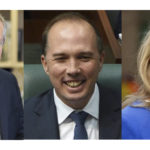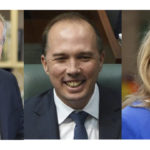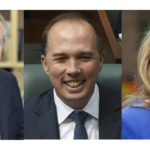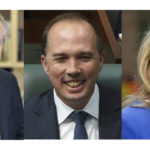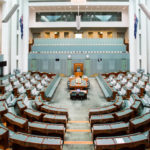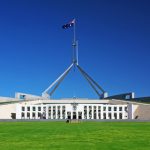Sports Rorts Scandal: Emails Suggest Morrison Lied About Involvement
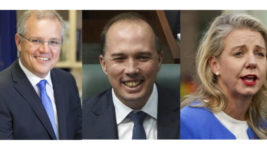
Further investigations by the Australian National Audit Office (ANAO) into the ‘sports rorts’ scandal have uncovered emails that show the PM’s office took more than a ‘passing interest’ in the grants scheme and that Senator Bridget McKenzie – who was Federal Sports Minister at the time – was not the sole-decision-maker regarding where the money was spent.
When the Sports Rorts scandal first broke in February – just a few weeks before the onset of COVID-19 – Prime Minister Scott Morrison repeatedly asserted to Parliament and the mainstream media that all grants issued as part of the Community Sport Infrastructure Grant Programme were above board.
In fact, he continued to insist this, even as damning evidence to the contrary started to pile up.
Information provided to a senate inquiry showed that 43% of projects which were awarded grants, were not eligible for the money.
Examples came to light: a rowing club in Tony Abbott’s electorate got half a million dollars. A soccer club in Scott Morrison’s own electorate boasted about receiving money before the grants were even announced. A Brisbane football club got $150,000 for a project that was already funded, and a rugby club with no female players got funding for female change rooms. And a gun club (which Bridget McKenzie failed to declare membership in) also received more than $30,000.
National Audit Office Investigation
Since March, the ANAO has been investigating the Community Sport Infrastructure Grants programme, along with several other Federal grant programmes to determine whether or not allegations that the government used these programmes as a ‘slush fund’ to ‘buy votes’ in ‘targeted’ electorates prior to the last federal election, are true.
And now the ANAO has provided fresh evidence of the extent to which the Prime Minister’s office was involved in determining where sporting grants went .
The ANAO says it has uncovered evidence that McKenzie’s office sent Mr Morrison’s office a letter on April 10, 2019 with print-outs of two worksheets. One was the list of 220 projects the minister intended to approve for funding and the other summarised the list by state, political party and electorate.
At 12.45pm, the Prime Minister’s office emailed Senator McKenzie’s office to ask that a $500,000 grant in the seat of Kennedy – held by renegade independent MP Bob Katter – be dropped and the same amount instead be given to the Hawthorn Malvern Hockey Centre. The centre is in the electorate of Kooyong, held by Liberal frontbencher Josh Frydenberg. According to the emails, Senator McKenzie’s office resisted, claiming the Kennedy project was important for the region, although eventually relented after the PM’s office pointed out the project had already received $3 million through a separate grants programme.
Senator McKenzie’s office sent an email to Sport Australia with the requested change at 8.46am on April 11. Since the Federal Election had been called, the government had gone into caretaker mode at 8.30am.
Caretaker conventions in Australia determine that while a government will continue with the administrative functions of government, no significant policy or law decisions should be made during the period when an election has been called, until an election result is determined. When it comes to allocating or spending money, promises can be made as part of election campaigning, but the Government will not commit to spend the money until after it is re-elected.
Later the same morning the Prime Minister’s Office asked for the list to be provided in Excel form instead of a PDF, with the rationale: “We need to be able to cross check against our list and also be able to pull individual projects out to coordinate announcements and material from CCHQ [Coalition Campaign Headquarters].”
Senator McKenzie’s office sent a finalised version of the office to the Prime Minister’s office at lunchtime and to Sport Australia shortly afterwards.
The national audit office found 11 changes had been made with nearly $2.8 million in extra funds approved.
What happens next in the sports rorts scandal is unclear, but Scott Morrison continues to declare that he has not misled Parliament about the involvement of his office in the decision-making.
And legal experts have been watching the outcome with interest, since Geoffrey Lindell, an emeritus professor in law at the University of Adelaide, told a Senate Inquiry that Ms McKenzie could be personally liable for failing to seek advice about whether she had the legal authority to give out $100 million of sports grants.
There are concerns about whether Ms McKenzie actually had the authority to approve grants, or whether that was the responsibility of Sport Australia. It had originally sent a list of recommendations to Senator McKenzie’s office which was, it would appear, largely ignored in the allocation process.
In the meantime, there is also the question of whether there has been misuse of public funds, or misconduct.
There are a number of regulations and laws in Australia that govern decisions around public spending to ensure that financial decisions are made fairly, legally, and using due process.
These exist not only as a guide for our politicians and public servants who are expected to act ethically and in the best interest of the general public, but because misconduct is a serious crime.


